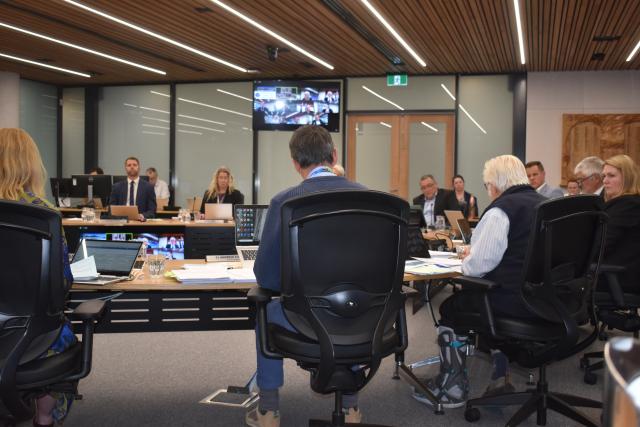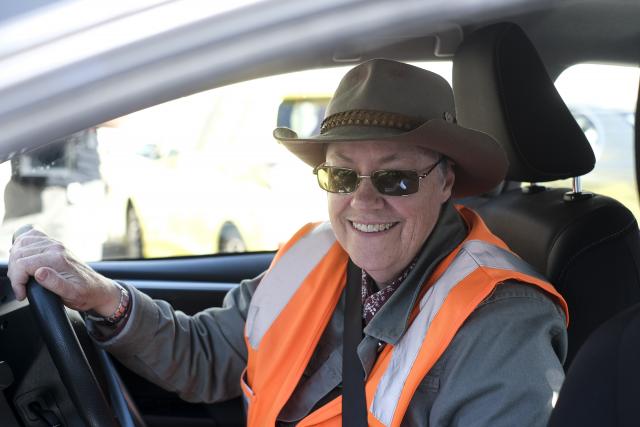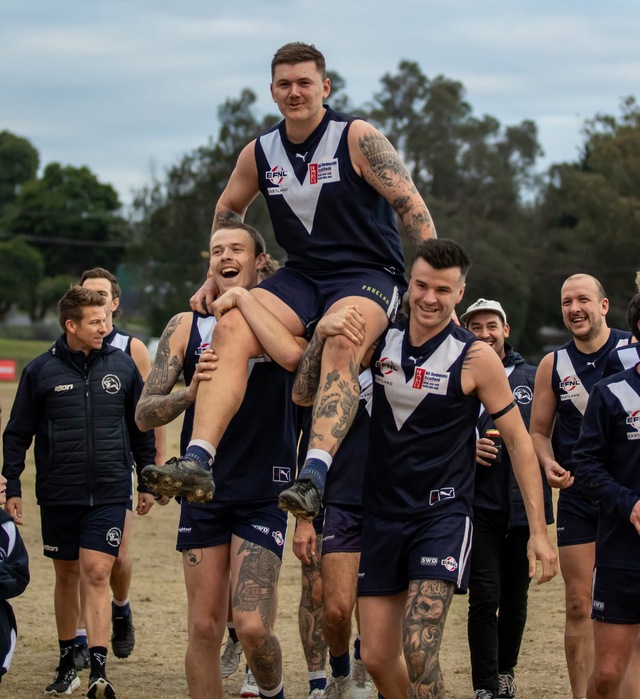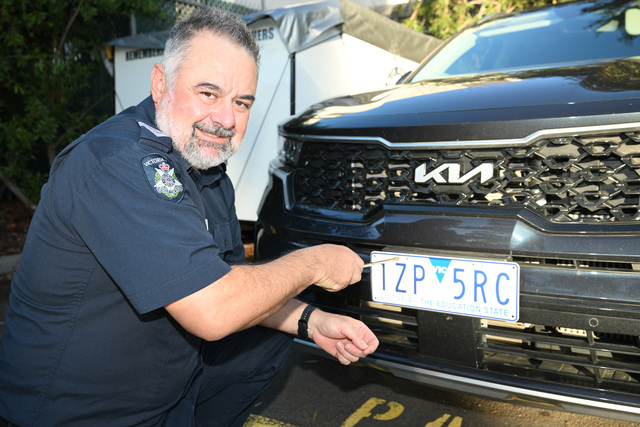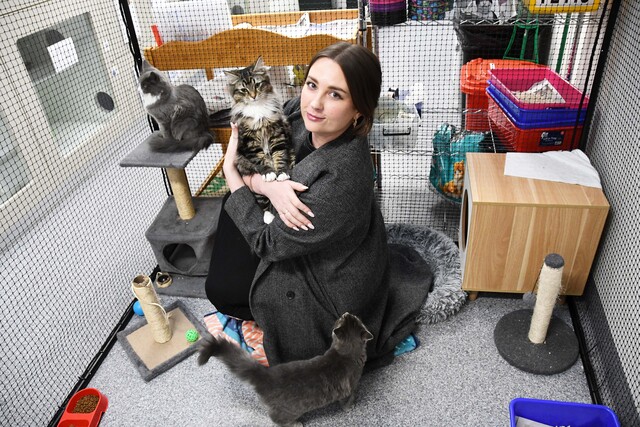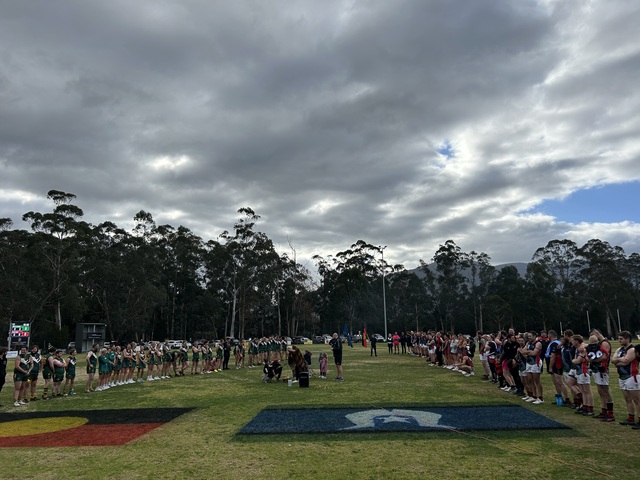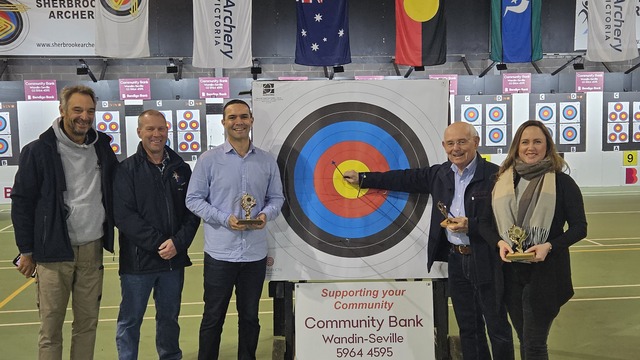Yarra Ranges Council deliberated on proposed changes to their Healthy Ageing Services at the Tuesday 24 October Council meeting with an initial view to step away from providing their meals, transport and social support group programs by 30 June 2024.
Two letters from community members who objected to the removal of the services did prompt a rethink, with an alternative motion passed to explore options to retain transport services.
Upper Yarra resident Carol Corcoran submitted a letter which was read out at the meeting, in which she said relies on Council’s transport to get to medical appointments and social activities such as the Wandin District Senior Citizens Club.
“Because I do not live along or near the bus service that travels along Warburton Highway, it would be nearly impossible for me to access this service, besides the fact that I cannot get onto the bus because of having knee problems and not able to walk long distances,” it read.
“I recently was charged $150 for a one-way trip to Mitcham Private Hospital for example, we are not able to access taxis and even if we book them, they will not travel further than Woori Yallock and just fail to turn up at all, leaving us stranded,”
“One of my friends who lives in Woori Yallock needed to get to St Vincent’s Hospital in East Melbourne and was able to get a taxi to pick her up and wait for her, the round trip cost her $700.”
Vicki Williams spoke to the item and said she has ‘mainly’ worked in medical transport for Yarra Ranges Council for five years.
“We’ve got people at Warburton or Menzies Creek, who can’t get taxis, I myself live in Gruyere, so I can’t get a taxi if I needed one, they just don’t come out that far. I once was a taxi driver and we would never go out there to pick up anybody,” she said.
“I’m just requesting that you think about keeping transport in some way, shape or form for medical purposes, for people who are isolated, for social support,”
“I realise that meals on wheels will be taken over by somebody else and our people will get meals on wheels in some way, shape or form, but as far as people being isolated and not being able to get to medical appointments, I feel that’s just such a tragedy.”
Chandler Ward Councillor David Eastham posed a question to Yarra Ranges Council’s Director of Communities Jane Price on what options for services will be in place in the future, especially for those who are not members of the Federal Government’s My Aged Care program.
Ms Price said Council is funded to deliver services to residents who are eligible through My Aged Care
“Current clients who are eligible will still continue to be able to be eligible and those who are assessed in future to be eligible will still be able to have a service. It will just be delivered by a different provider,” she said.
“If people aren’t eligible, we again work with other transport providers in the region and we can advocate to them to look at what other options may be available for them.”
“It’s typically not-for-profit organisations who are the alternative providers.”
Deputy Mayor and Melba Ward Councillor Sophie Todorov asked if the costs of alternative services be on par with what Council’s clients are currently paying.
Ms Price said it’s difficult for Council to say exactly what the cost is going to be in future because the Commonwealth is responsible for choosing the new service provider.
“What we do know is that it is likely that costs may be higher, one of the things that we discovered when we did the review about existing transport service is that the costs were relatively low,”
“Even if Council were to remain a provider of transport, we would be needing to increase our costs but it’s important to note that the Commonwealth have a framework, a national framework, so there are limits and parameters within which all providers need to charge,”
“The other important thing to note is that all providers have policies around hardship to look at what the individual circumstances are and whether there’s potential for fee waving or fee reductions.”
Another question from Lyster Ward Councillor Johanna Skelton was asked as to whether Council would be compliant with the National Competition Policy if they were to keep providing transport at a cheaper cost as it would be propped up by rates, which was confirmed.
Yarra Ranges Council Mayor and O’Shanassy Ward Councillor Jim Child put forward an alternative recommendation and said this opens the door for an investigation piece.
“That would be for the council officers to investigate options to enable vulnerable residents in remote areas of the municipality to access transport as part of the council’s future Healthy Ageing model,” he said.
“We’ve been doing this with the funding from the Federal Government model and that model is changing and it’s something that going into the future we won’t be able to provide but we owe it to our senior residents that we go on the journey with them through this transition and that’s the most important part to me.”
The alternative motion was carried after all bar Walling Ward Councillor Len Cox OAM voted in favour.
Manager of Transport Operations at EV Community Transport, who operate in the Yarra Ranges and particularly the Upper Yarra, Marnie O’Loughlin and said Yarra Ranges is not the first council to make the decision not to continue providing the services in this way.
“There’s definitely service providers that are up there, we’ve been up there for 10 years as we hold a contract for the Eastern Metro Region for community transport and do receive some funding to deliver services up there,” she said.
“Having worked the area for a while and being involved in multiple consultations up in the area, there are more significant transport barriers as you get further up.”
EV Community Transport is currently in the midst of an Upper Yarra Flexible Transport Trial they are running, calling on community members to give a lift to other residents when they set out for their own travel. The trial started in August and will conclude in November.
Ms O’Loughlin said volunteering also looks different coming out of Covid.
“There’s still a fabric of communities, but the way people are choosing to volunteer has certainly changed and what they’re looking for and the time that people have to volunteer has changed which is why we started to look and work on a model that changes the idea of volunteering,” she said.
“We’ve certainly had some intake of volunteers, people willing to and have signed up for the program and we would like to see more people using it because not enough people are utilizing it,”
“We’re trying to work out what those barriers are because sometimes it’s not necessarily about just transport, there’s other things that may prevent somebody from engaging in it.”
EV Community Transport is the coordination point for the trial, helping assign volunteers to clients that aren’t far out of their way, while also acting as a failsafe with their own drivers available to ensure that any cancellations or issues don’t result in clients being unable to reach their destination.
Ms O’Loughlin said transport options are extremely important and it’s not just about medical needs, but social as well.
“If you’re not connected in community, your health outcomes decline, it’s as simple as that, connection is really important, as well as being able to access essentials like food and we all know how what the outcomes of not having the right medical care are,” she said.
“Council aren’t just putting their hands up, there’s still a lens for them on how that’s going to work so that their clients are supported,”
“It’s all about having services that are already out there and already engaged. We are one of them and quite willing to work with Council and with the bodies involved to be able to support the Yarra Ranges.”

